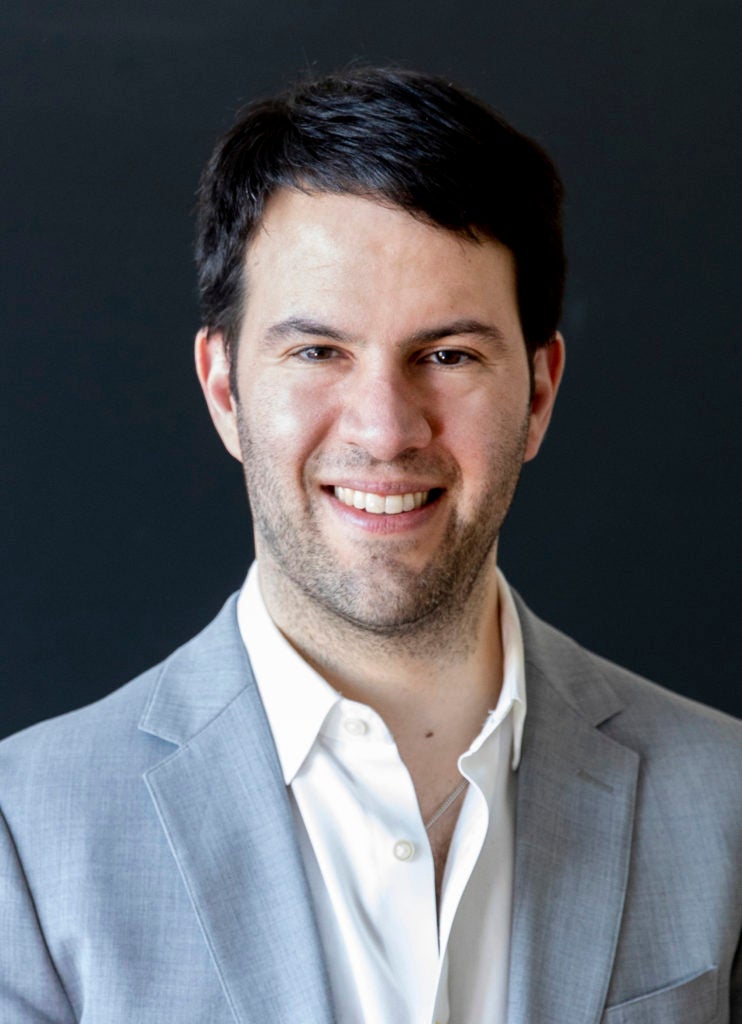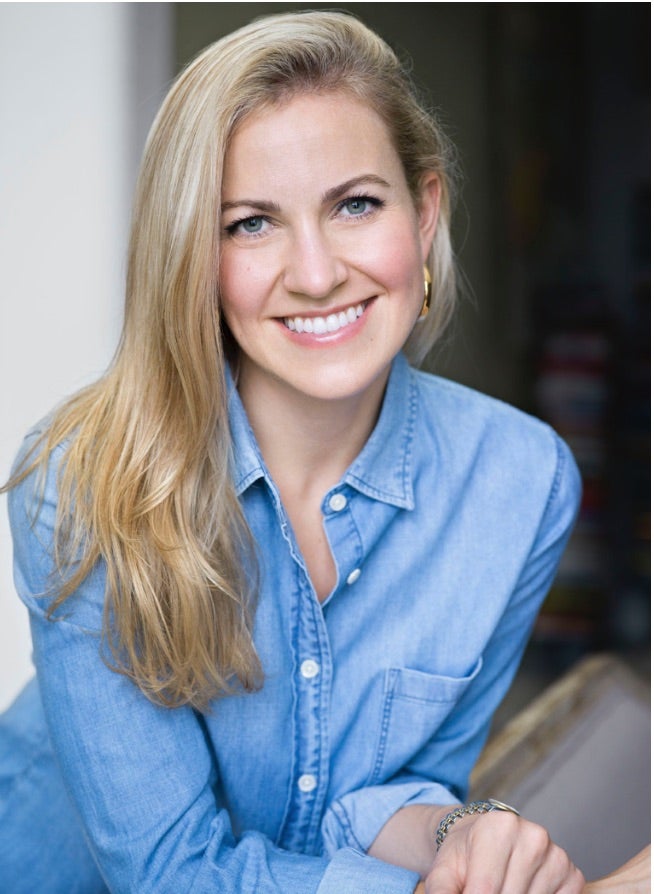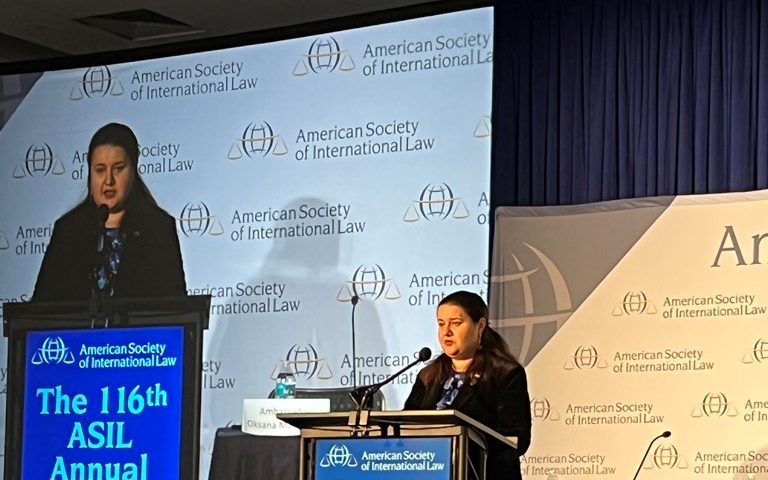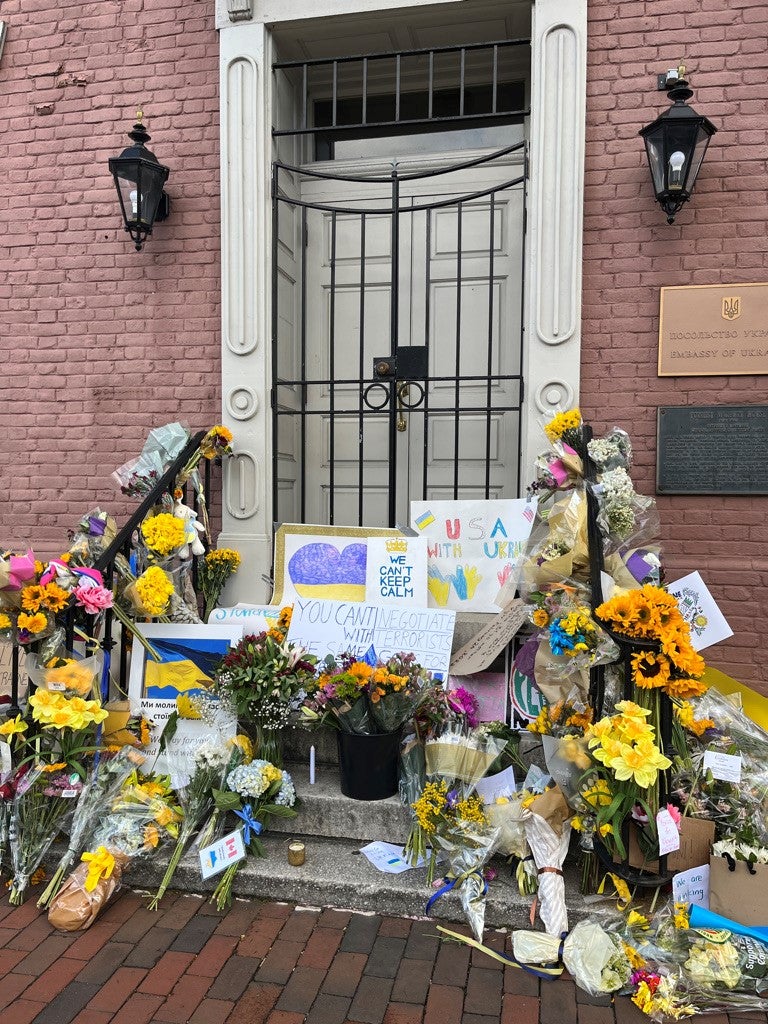By Catherine Katz, J.D. ’23
[The views expressed are the author’s own and are not necessarily those of the U.S. government.]
This spring, I participated in the Semester in Washington Clinical Program with a placement at the State Department in the Office of the Legal Adviser—also known as “L”. I was excited to learn about this program when I started at HLS in the fall of 2019, but after spending so much time away from campus during COVID, I was not sure if I wanted to spend another semester outside Cambridge. In the end, I am so glad I decided to participate in this program, as it was truly a once in a lifetime experience to have a front row seat to history.
I had always hoped to work at the State Department, especially because I came to law school as a writer and historian of modern American and European diplomacy and foreign relations. During my time at HLS, I published my first book, The Daughters of Yalta: The Churchills, Roosevelts, and Harrimans: A Story of Love and War, which tells the true story of the relationships between Churchill, FDR, Ambassador Averell Harriman and their daughters, who served as their fathers’ aides at the Yalta Conference in 1945. While researching the book, I spent many hours reading wartime diplomatic cables from storied figures who once walked the halls of the State Department, like Harriman, Chip Bohlen, and George Kennan—later the “Wise Men” of the Cold War. To have the opportunity to see how the State Department functions not just from an historical perspective, but in real time, was a dream come true. Little did I know when I started at L in January just how relevant that experience studying the breakdown of relations between the Soviet Union and the West in 1945 would become.
L is essentially the in-house law firm for the State Department, and the other bureaus at State serve as L’s “clients.” L is composed of a number of sub-offices referred to as either “regional” or “functional” offices. Regions, of course, are broken down as you would expect (Europe, East Asia and the Pacific, etc.), while functional offices focus on particular issues that may touch all regions, such as United Nations Affairs, Political and Military Affairs, Consular Affairs, Human Rights and Refugees, even things like Employment, Management, and Buildings and Acquisitions, which deals with the physical property of our embassies and consulates abroad. Attorney-Advisers rotate across these different functional and regional offices during their careers to develop broad perspectives and expertise. Externs, meanwhile, are assigned to one functional and one regional group during their time at L. I was assigned to the Management functional office (L/M) and the Europe regional office (L/EUR), which was a perfect match with my European history background.
When I arrived at L on January 24, relations with Russia were challenging. Putin was escalating tensions with an enormous troop buildup along the Belarus/Ukraine border, and it was unclear whether this was a massive bluff or preparation for an invasion. If it was preparation for an invasion, would this be something similar to Crimea in 2014 aimed at seizing the Donbas region, or would it be something bigger? During that first month, I was excited to get involved in Russia-related issues, such as matters related to an arbitration decision that a Russian company was trying to enforce against Ukraine in US courts, listening to oral arguments at the European Court of Human Rights in the MH17 case, and certain theoretical questions of public international law in the event Putin was not bluffing about invading Ukraine.
Then, on February 24, exactly one month after I started at L, everything changed. Suddenly, all of the issues I had learned about during my 2L fall semester in Public International Law with Professor Modirzadeh were right in front of me, not in theory, but in reality. Immediately, L was confronted with questions ranging from issues of diplomatic privileges and immunities as Foreign Service Officers worked to close the embassy in Kyiv, to Russia’s suspension or expulsion from international organizations like the Council of Europe and UN Human Rights Council. Especially pressing was the discussion around war crimes and whether the U.S. government could assess that Russia had committed war crimes. Eventually, on March 23, the Secretary of State issued a statement announcing that the U.S. government had assessed that members of Russia’s forces have committed war crimes in Ukraine. It was fascinating to listen as the brilliant and experienced lawyers at L discussed these issues deftly and swiftly to help the rest of the State Department and other colleagues in the Executive branch respond to each matter as it arose.
This war in Ukraine also brings to light many interesting questions that international lawyers will have to grapple with in new ways. With millions of photographs and videos taken by Ukrainian citizens on their cell phones that show the horrifying atrocities Russia has committed, this is now the most documented war in history. Going forward, how will lawyers process all of this evidence in the most effective way to bring the perpetrators of this illegal war to justice?
Separately and coincidentally, shortly before the Semester in Washington program began, the State Department’s women’s network, Executive Women at State, asked if I would be interested in coming to give a talk about Daughters of Yalta? They did not realize I was working as an Extern at the State Department this spring, so it felt all the more fortuitous. It was a surreal experience to discuss diplomatic history, Russia and an event that took place 77 years ago in Ukraine at the end of WWII in front of an audience of diplomats working in response to this war with Russia in almost exactly the same location in Ukraine. Never before has history felt closer at hand.

Towards the end of my time at L, my team invited me to come to the American Society of International Law Annual Meeting in Washington. The Assistant Legal Adviser in charge of L/EUR was presenting, but earlier in the day the Ukrainian Ambassador, Oksana Markarova, had decided to make a last-minute appearance to appeal to this community of leaders in international law for more support for Ukraine. The L/EUR team had been working with Ambassador Markarova on a number of matters, and when they went to say hello to her, I was able to join them and shake her hand. That was one of the most meaningful moments during my time at L.
Working at L during this historic time allowed me to feel that, even in a very small way, I was helping. It is one thing to tune in to CNN after work each day and watch in horror and in sympathy as scenes of devastation play out in front of us from our position of safety and security in the US, but each time I walked past the Ukrainian Embassy in my neighborhood and saw the steps strewn with sunflowers and messages of love and support, I felt so thankful that I could contribute something to help them—even if it was something as small as putting together a timeline of events to establish whether another state could be deemed complicit in aiding Russia in its illegal invasion of Ukraine. While this war will likely last for months, and perhaps even years, it is the painstaking work and dedication of attorneys like those in L, just like those who broke new ground in international law at Nuremburg, that will eventually bring the perpetrators of these heinous acts to justice. I am so thankful to have had this opportunity to be a small part of that team.
Filed in: Clinical Student Voices
Tags: Class of 2023, Government Lawyer: Semester in Washington Clinic
Contact Office of Clinical and Pro Bono Programs
Website:
hls.harvard.edu/clinics
Email:
clinical@law.harvard.edu


